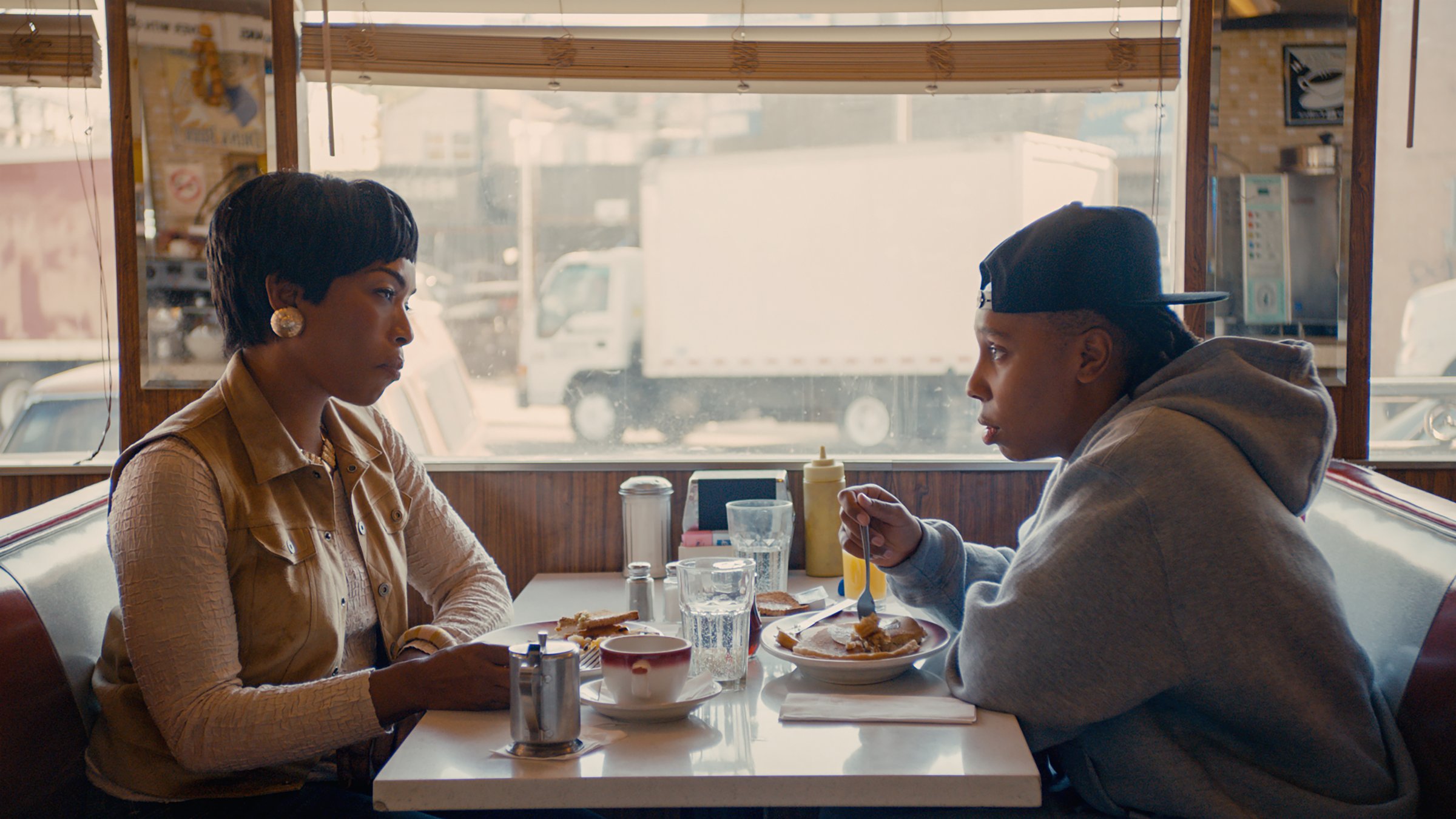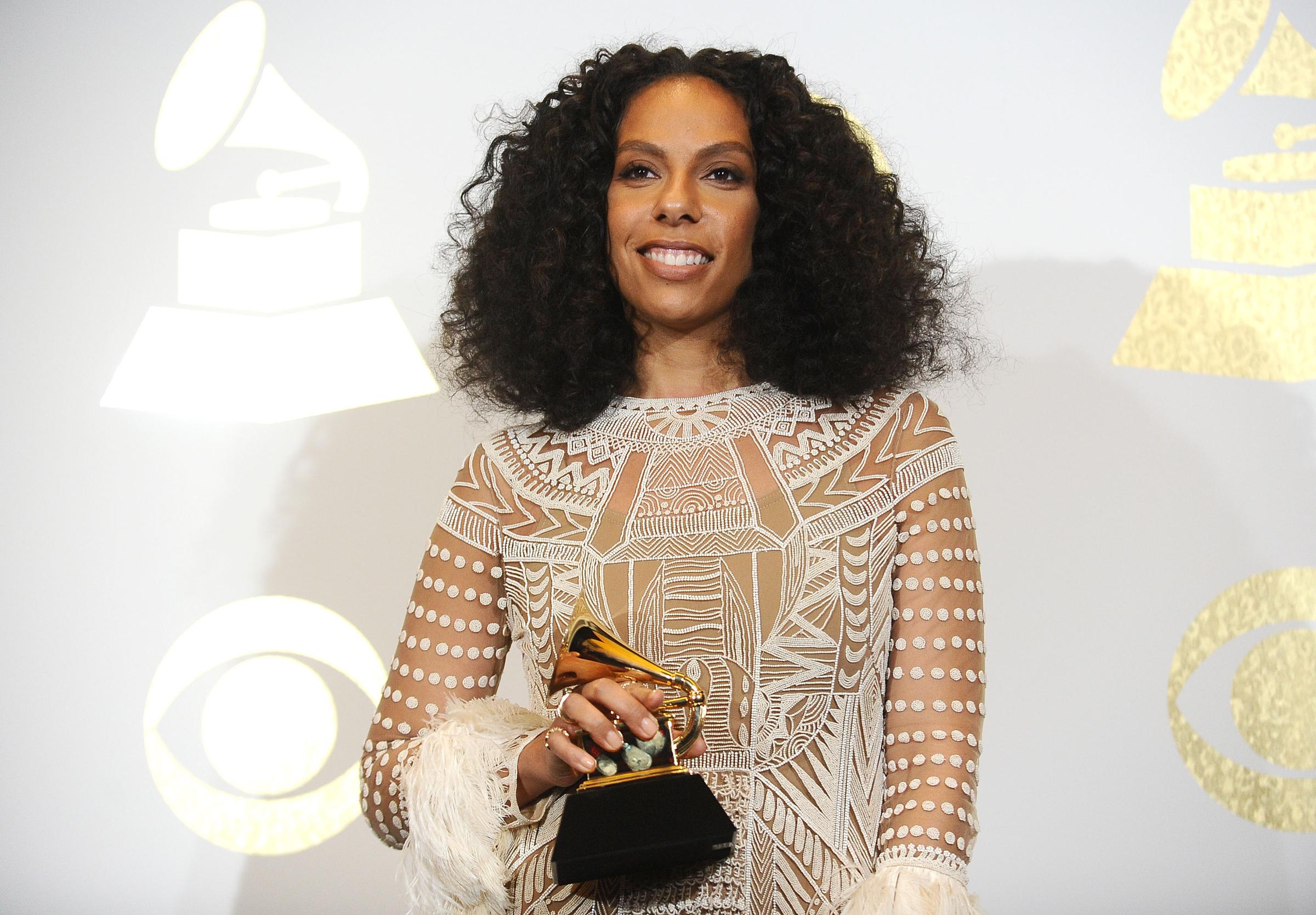
The Master of None creators construct the Netflix series to feel more authentic than other shows: Creators Aziz Ansari and Alan Yang often pull storylines and dialogue from the real lives of the show’s actors and writers. So when Lena Waithe, who plays Denise, shared her story of coming out to her mother, Ansari knew he had to turn the experience into an episode.
“Aziz has two things,” says Waithe. “Is it honest? And has it been done before? If the answer to the first question is yes and the answer to the second question is no, he’s a happy man.”
The episode, written by Waithe and Ansari, stands out as one of the most original half-hours in recent television history. The writers recruited director Melina Matsoukas, best known for her work on Beyoncé’s visual album Lemonade, Rihanna’s “We Found Love” music video and Issa Rae’s show Insecure, to helm the episode. “I just thought it was a really important story to tell,” says Matsoukas. “I’d never seen a black woman come out on TV before.”
The aptly named “Thanksgiving” centers on three generations of women meeting every year for dinner at Denise’s house, occupying the same seats in each shot: Denise, Denise’s mother (Angela Bassett) and her “aunty” (Kym Whitley) and Denise’s grandmother (Venida Evans). Little changes over the years: their discussion of the police and O.J. in the 1990s eerily parallels their discussion of the police and Sandra Bland in the 2000s.
The one thing that does evolve is Denise’s sexuality. In elementary school, she opts for baggy clothes over the dress her mother picked out for her. In high school, she stares at a picture of Jennifer Aniston on Friends that hangs above her bed after telling Dev that she’s mulling the label “lesbian.” By college, she comes out to her mother. And in three final scenes, she brings two girlfriends to dinner — one an intelligent world-traveler, the other a ditzy Instagram obsessive with the handle “NipplesandToes23” — and anxiously looks on as a vexed Bassett and wine-chugging Whitley react.
Ansari convinced Waithe that she needed to have a hand in penning the personal episode. “It’s very rare in this town that people that look like us get to tell our story without it being filtered through someone who doesn’t look like us,” says Waithe. “So often you turn in a script, and then people go, ‘Okay let us make this palpable for a broader audience,’ and we know what they mean when they say ‘broader audience.'”
For her part, Matsoukas has built up her resume by translating artists’ most personal and vulnerable moments to the screen. Her job is getting her subjects to open up: “Alcohol helps,” she jokes. “Honestly, I just try to have real conversations and dig as deep as I can into their business — what inspired them, what inspired their stories, what made them the women they are.”
That includes even the smallest details, like the ’90s posters on Denise’s wall and Bassett’s changing hairstyles, which referenced strong, black mother figures from each era. Phylicia Rashad on the Cosby Show was a major influence.

Much of the tension in the episode is built around Denise’s family refusing to discuss the character’s sexuality, “like black WASPS,” says Waithe. “In our community, there’s this thing of upholding perfection. If you look at the Obamas, they had to be damn near perfect. So for our parents, it’s about life being more difficult for you. Racism is still a thing. Homophobia is still a thing. You put those two things together, and and it’s like, oh, I’m going to have to try that much harder.”
Denise finally forces her mother to talk about her sexuality during the coming-out scene in a diner — designed to look like the restaurant where Waithe came out to her real-life mom. Waithe wasn’t eager to relive the moment. “I didn’t want to be in the corner listening to Frank Ocean on repeat by myself,” she says. “But Angela was very maternal. She asks, ‘What do you need from me in this scene?’ I think it established the dynamic.”
Matsoukas tried to play off the contrasting styles of the two actors. “Lena’s acting is very authentic. She acts as she is in real life,” she says. “And then Angela’s this very knowledgable, crafted actress. I remember just saying action in the rehearsal and there was this passion. It exploded. Tears came down [Angela’s] eyes in rehearsal, and I was like, ‘Why the f— didn’t we shoot this? It was just so beautiful.”
“We hadn’t rehearsed it before, so it was the first time Angela was hearing it as a mother,” she adds. “There’s only one first time, and that’s what that was.”
After season one, Waithe was heartened by the reaction to Denise, one of very few non-white LGBTQ characters on television. “I love my gender, my blackness, my gayness. I wear it with a badge of pride,” she says. “I also do that because there are people in the public eye who look like me who don’t do that. They try to blend in so they can maintain the status quo.”
But “Thanksgiving” was a watershed moment. “It was vindicating for me,” says Waithe. “When you’re in the moment [of coming out], you feel very insecure. You feel very vulnerable. You feel alone in the world. But to have survived that moment and come out of it the other side and be a successful person who is celebrated and embraced by the audience, I’m really proud of that.”
Matsoukas ends the episode with one long shot from above the table that shows the family praying together, reminding watchers of the universal ritual of gathering for a holiday dinner. “The more we can humanize a character like Denise,” Waithe says, “it’s a tiny piece of the revolution.”
More Must-Reads from TIME
- Why Trump’s Message Worked on Latino Men
- What Trump’s Win Could Mean for Housing
- The 100 Must-Read Books of 2024
- Sleep Doctors Share the 1 Tip That’s Changed Their Lives
- Column: Let’s Bring Back Romance
- What It’s Like to Have Long COVID As a Kid
- FX’s Say Nothing Is the Must-Watch Political Thriller of 2024
- Merle Bombardieri Is Helping People Make the Baby Decision
Write to Eliana Dockterman at eliana.dockterman@time.com